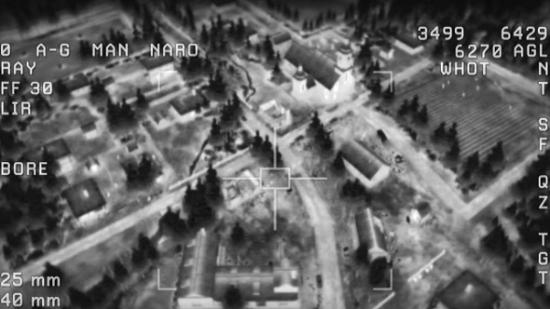A recently retired commander for the British Royal Air Force has suggested the military should recruit gamers to pilot drones on missions against Isis in Iraq and Syria. The former air marshal, Greg Bagwell, previously oversaw RAF Reaper drone operations, so he’s one of the most qualified people to make such a suggestion, no matter how absurd it may sound.
According to a report in The Guardian, he suggested the non-stop demand for the deployment of these unmanned aircraft means the RAF should test recruiting young gamers to see if they can operate these remote killing machines.
“We need to test harder whether we can take a young 18 or 19-year-old out of their PlayStation bedroom and put them into a Reaper cabin and say: ‘Right, you have never flown an aircraft before [but] that does not matter, you can operate this’,” Bagwell said.
He went on to explain the crossover between gamers and drone pilots, and how both have to judge a space without actually being present there.
“In order to be a very good Reaper operator you need that three-dimensional view of what is going on around you, even though you are 3,000 miles away,” he explained. “You are playing three-dimensional chess in your mind, so you understand how the various pieces fit together in terms of prosecuting a target.”
Traditionally, the RAF have recruitedfrom the ranks of fixed and rotary wing pilots, but there’s a shortage at the moment, so they can’t keep up with the relentless demand for strikes on foreign soil.
The huge psychological pressure put on drone operators in the UK means that some quit due to mental stress or illness, thanks to their job literally placing the lives of others in their hands, as well as added pressure from uncertainty whether each strike they perform is lawful or not. Bagwell says the law also needs looking at to give drone operators confidence that each strike is performed in accordance with the law.
Bagwell’s vision is shared byGen Sir Richard Barrons, a joint forces commander who retired in April. “We need to set ourselves up for a future where a combination of robotics, autonomous systems and artificial systems will create capabilities that our enemies may have before we do – where machines kill on the basis of an algorithm without a human in the room,” saidBarrons.
“That is not science fiction and it will not be very long before western armed forces are acquiring capability like that, and they will need to be absolutely clear what rules we have and when they apply.”
